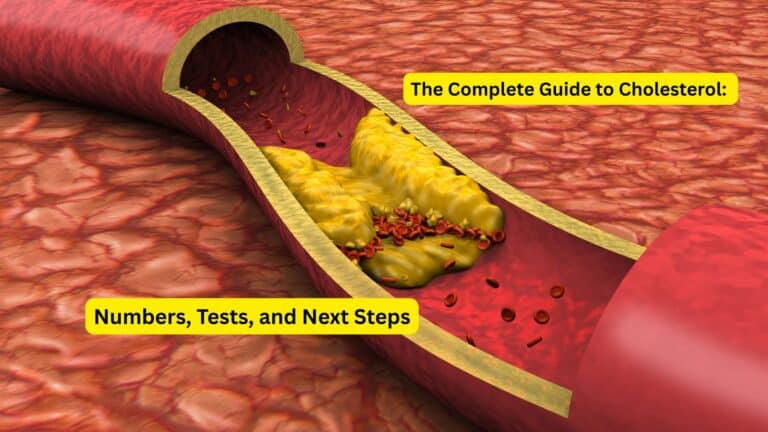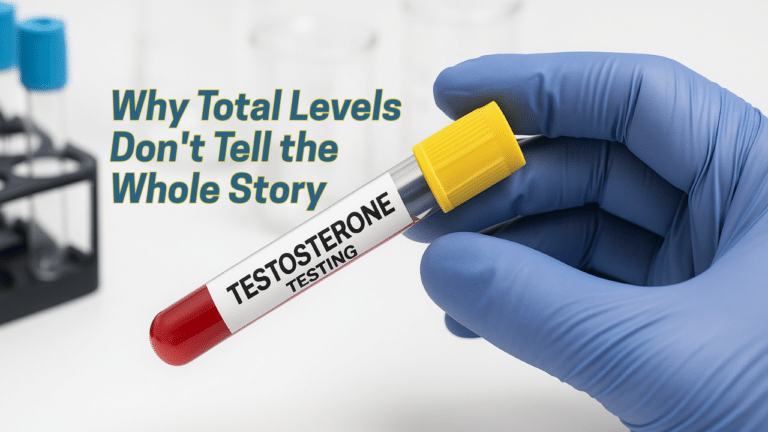Your thyroid gland may be small, but when it malfunctions, the effects can ripple through every aspect of your health and daily life. Thyroid dysfunction affects millions of people worldwide, yet many dismiss the early warning signs as stress, aging, or simply being “out of shape.” Understanding the common symptoms of thyroid problems can be the difference between years of unnecessary suffering and getting the treatment you need to reclaim your energy, mood, and overall wellbeing. Recognizing these warning signs empowers you to seek proper testing and treatment before complications develop.
Recognizing Thyroid Symptoms
Thyroid symptoms often develop gradually and can mimic other health conditions, making them easy to overlook or attribute to unrelated causes. The key lies in recognizing patterns of symptoms that persist despite lifestyle changes or adequate rest. Both hypothyroidism (underactive thyroid) and hyperthyroidism (overactive thyroid) create distinct symptom profiles that reflect how thyroid hormones influence virtually every system in your body.
Fatigue and Low Energy
The overwhelming exhaustion associated with thyroid dysfunction differs significantly from normal tiredness. This isn’t the fatigue you feel after a busy day or poor night’s sleep—it’s a bone-deep weariness that persists regardless of how much rest you get. People with hypothyroidism often experience overwhelming fatigue not relieved by rest, describing it as feeling like they’re moving through thick fog or carrying invisible weights.
This persistent fatigue occurs because thyroid hormones regulate how your cells produce and use energy. When thyroid hormone levels are low, your cellular metabolism slows down, leaving you feeling constantly drained. Even simple tasks like climbing stairs, carrying groceries, or focusing at work can feel monumentally difficult.
In hyperthyroidism, fatigue manifests differently. While you might feel energetic or “wired” initially, the constant overstimulation eventually leads to exhaustion. Your body burns through energy reserves rapidly, leaving you feeling depleted despite having periods of high energy or restlessness.
Weight Changes
Weight fluctuations related to thyroid dysfunction often occur despite no significant changes in diet or exercise habits. These changes can be frustrating and confusing, particularly when they don’t respond to typical weight management strategies.
Hypothyroidism typically causes unexplained weight gain, while hyperthyroidism often leads to weight loss despite normal or increased appetite. In hypothyroidism, the slowed metabolism means your body burns fewer calories at rest, making weight gain common even with reduced food intake. Many people notice their clothes fitting tighter around the waist and face, along with general puffiness or bloating.
Hyperthyroidism creates the opposite effect, with an accelerated metabolism that burns calories rapidly. People may lose weight despite eating more than usual, which initially might seem positive but becomes concerning when weight loss continues despite adequate nutrition. This rapid weight loss can lead to muscle wasting and nutritional deficiencies if left untreated.
Some individuals experience weight fluctuations as their thyroid function changes over time, making it difficult to maintain a stable weight without proper hormone regulation.
Mood and Cognitive Shifts
The connection between thyroid function and mental health is profound, with thyroid hormones directly affecting brain neurotransmitter production and function. Thyroid dysfunction is linked to anxiety, depression, irritability, and cognitive issues like memory and concentration problems, often leading to misdiagnosis or inadequate treatment of mood disorders.
Hypothyroidism commonly causes depression, with symptoms including persistent sadness, loss of interest in activities, difficulty concentrating, and memory problems. Many people describe feeling mentally “foggy” or unable to think clearly. This brain fog can affect work performance, relationships, and overall quality of life.
Hyperthyroidism tends to produce anxiety, irritability, and restlessness. People may feel constantly on edge, have difficulty sitting still, or experience panic attacks. Racing thoughts, difficulty concentrating, and emotional volatility are common. The overstimulation can make it hard to sleep, further exacerbating mood problems.
Recent research emphasizes that treating underlying thyroid dysfunction often significantly improves mood and cognitive symptoms, highlighting the importance of comprehensive evaluation when mental health issues don’t respond to traditional treatments.
Temperature Sensitivity
Your thyroid acts like your body’s thermostat, regulating internal temperature through metabolic rate control. When thyroid function is disrupted, temperature regulation becomes impaired, leading to characteristic sensitivity patterns that can help distinguish thyroid-related symptoms from other conditions.
Cold intolerance is a hallmark of hypothyroidism, with people feeling chilly even in warm environments. You might need extra layers of clothing, have difficulty warming up after being cold, or notice that your hands and feet are consistently cold. This occurs because the slowed metabolism produces less body heat.
Heat intolerance characterizes hyperthyroidism, with excessive sweating, feeling overheated in normal temperatures, and difficulty cooling down. The accelerated metabolism generates excess heat, making you feel uncomfortable in temperatures that others find pleasant. Night sweats and intolerance to warm weather are common complaints.
These temperature sensitivities often persist regardless of environmental conditions and don’t improve with typical warming or cooling measures, distinguishing them from normal temperature preferences.
Physical Changes
Thyroid dysfunction produces various physical changes that can serve as visible warning signs of hormonal imbalance. These changes often develop gradually but become more pronounced as the condition progresses.
Hair changes are particularly common, with thinning or loss affecting the scalp, eyebrows (especially the outer third), and body hair. Hair may become dry, brittle, or coarse in texture. These changes occur because hair follicles are sensitive to thyroid hormone levels and slow their growth cycle when hormones are imbalanced.
Muscle weakness, particularly in the upper arms and thighs, can make routine activities challenging. You might notice difficulty climbing stairs, lifting objects, or getting up from chairs. Joint aches and stiffness may also develop, mimicking arthritis symptoms.
Skin changes include dryness, roughness, or a yellowish tint in hypothyroidism, while hyperthyroidism may cause warm, moist skin that’s prone to sweating. Nail changes, such as brittleness or ridging, can also occur.
Other physical symptoms include goiter (visible thyroid enlargement), irregular heartbeat or palpitations, changes in voice quality, and swelling in the face, hands, or feet.
Mental Health and Thyroid Disorders
The relationship between thyroid function and mental health extends beyond simple mood changes, involving complex interactions between thyroid hormones and brain neurotransmitter systems. Understanding this connection helps explain why thyroid disorders can profoundly impact psychological wellbeing and why comprehensive treatment addresses both physical and mental health aspects.
Thyroid hormones influence the production and function of key neurotransmitters including serotonin, dopamine, and norepinephrine, which regulate mood, motivation, and cognitive function. When thyroid levels are imbalanced, these neurotransmitter systems can become disrupted, leading to psychiatric symptoms that may be mistaken for primary mental health disorders.
The Importance of Holistic Care
Recent research emphasizes that effective treatment of thyroid-related mental health symptoms requires addressing the underlying hormonal imbalance rather than treating mood symptoms alone. Many people find that antidepressants or anti-anxiety medications provide limited benefit until thyroid function is optimized.
Healthcare providers increasingly recognize the need for comprehensive evaluation that includes thyroid testing when patients present with treatment-resistant depression, anxiety, or cognitive complaints. This holistic approach can prevent years of ineffective treatment and help identify the root cause of mental health symptoms.
For patients already receiving mental health treatment, adding thyroid hormone therapy when indicated can significantly enhance the effectiveness of existing treatments and improve overall outcomes.
Why Early Testing Matters
Early detection of thyroid dysfunction through proper testing can prevent serious health complications and improve quality of life dramatically. The window between symptom onset and potential complications makes timely testing crucial for optimal health outcomes. Understanding what tests are available and when to pursue them empowers you to take control of your thyroid health.
Blood tests measuring TSH, T3, and T4 hormones remain the gold standard for diagnosing thyroid dysfunction, providing objective measurements that can confirm or rule out thyroid problems even when symptoms are subtle or nonspecific.
Preventing Complications
Early detection through symptom recognition and testing can prevent complications like heart disease, infertility, osteoporosis, and cognitive decline. Untreated hypothyroidism can lead to elevated cholesterol, heart rhythm abnormalities, and increased cardiovascular risk. In women, it can cause menstrual irregularities and fertility problems.
Untreated hyperthyroidism poses risks including bone loss, heart rhythm disturbances, and potentially life-threatening thyroid storm. The earlier these conditions are identified and treated, the better the long-term outcomes and quality of life.
Testing Options and Accessibility
Walk-In Lab provides convenient access to comprehensive thyroid testing without the need for doctor visits or insurance pre-approval. A complete thyroid panel typically includes TSH (thyroid-stimulating hormone), free T4, and free T3 measurements, providing a complete picture of thyroid function.
This accessibility is particularly valuable for people experiencing symptoms but facing barriers to traditional healthcare, such as long wait times, high costs, or lack of insurance coverage. Early testing allows for prompt consultation with healthcare providers when results indicate thyroid dysfunction.
Practical Implications for Patients
Recognizing thyroid symptoms and understanding when to seek testing requires a balanced approach that avoids both dismissing concerning symptoms and unnecessary anxiety about normal variations in how you feel. The key lies in monitoring patterns over time and recognizing when symptoms persist or interfere with daily functioning.
Document symptoms, including when they occur, their severity, and any patterns you notice. This information helps healthcare providers understand your experience and can guide treatment decisions. Pay particular attention to symptoms that develop gradually but progressively worsen over time.
Lifestyle Support Strategies
While lifestyle modifications cannot cure thyroid disorders, they can support overall health and potentially improve how you feel while pursuing proper medical treatment. Stress management techniques such as meditation, yoga, or regular relaxation practices may help reduce some symptoms and support hormonal balance.
Balanced nutrition supports thyroid health, though specific dietary changes should complement, not replace, medical treatment. Regular exercise, within your energy limitations, can help maintain muscle strength and support mood, though it’s important not to overexert yourself when dealing with thyroid-related fatigue.
Adequate sleep becomes even more crucial when dealing with thyroid dysfunction, as hormonal imbalances can disrupt sleep patterns while your body needs additional rest for healing and recovery.
The Importance of Professional Diagnosis
Self-diagnosis based on symptoms alone is never sufficient for thyroid disorders. Many conditions can cause similar symptoms, and proper medical evaluation is essential for accurate diagnosis and appropriate treatment. Testing provides the objective data needed to confirm thyroid dysfunction and guide treatment decisions.
If test results confirm thyroid problems, working with qualified healthcare providers ensures safe and effective treatment. Thyroid disorders are highly treatable when properly managed, and most people experience significant improvement in symptoms with appropriate therapy.
Frequently Asked Questions
What are the earliest symptoms of thyroid problems?
The earliest symptoms often include persistent fatigue that doesn’t improve with rest, unexplained changes in weight despite consistent diet and exercise habits, and mood changes such as depression or anxiety. Many people also notice increased sensitivity to temperature—feeling cold all the time with hypothyroidism or overheating easily with hyperthyroidism. Hair thinning and changes in energy levels throughout the day are also early indicators that warrant investigation.
How do hypothyroidism and hyperthyroidism symptoms differ?
Hypothyroidism symptoms reflect a slowed metabolism and include fatigue, weight gain, cold sensitivity, depression, dry skin, hair loss, constipation, and muscle weakness. Hyperthyroidism symptoms indicate an overactive metabolism and include anxiety, weight loss despite increased appetite, heat intolerance, rapid heartbeat, excessive sweating, difficulty sleeping, and trembling hands. While some symptoms like fatigue can occur in both conditions, the overall patterns are typically distinct.
Can thyroid disorders affect mental health?
Thyroid disorders significantly impact mental health by affecting brain neurotransmitter production and function. Hypothyroidism commonly causes depression, memory problems, difficulty concentrating, and mental fog. Hyperthyroidism often leads to anxiety, irritability, panic attacks, and racing thoughts. These mental health effects can be severe enough to interfere with work, relationships, and daily functioning, and they often improve dramatically with proper thyroid treatment.
What tests confirm thyroid dysfunction?
The primary tests include TSH (thyroid-stimulating hormone), free T4, and free T3 measurements. TSH is usually the first screening test, as it’s very sensitive to thyroid hormone changes. Free T4 and T3 measure the active hormones available to your cells. Additional tests might include thyroid antibodies to check for autoimmune conditions, or imaging studies if there are structural concerns about the thyroid gland itself.
Do men and women experience thyroid symptoms differently?
While the core symptoms are similar, women may experience additional reproductive health effects including irregular menstrual periods, heavy bleeding, fertility problems, and complications during pregnancy. Women are also more likely to develop thyroid disorders overall. Men might notice decreased libido, muscle weakness, and changes in body composition. However, fatigue, mood changes, weight fluctuations, and temperature sensitivity affect both sexes similarly.
Conclusion
Thyroid symptoms often masquerade as everyday complaints, making them easy to dismiss or attribute to stress, aging, or lifestyle factors. However, the persistent nature of these symptoms and their impact on multiple body systems should prompt consideration of thyroid dysfunction as a potential underlying cause.
The key to optimal thyroid health lies in recognizing warning signs early and pursuing appropriate testing to confirm or rule out thyroid problems. Many thyroid disorders are highly treatable once properly diagnosed, and early intervention can prevent serious complications while dramatically improving quality of life.
Don’t let persistent symptoms continue to affect your wellbeing. Whether you’re experiencing overwhelming fatigue, unexplained weight changes, mood shifts, or temperature sensitivity, thyroid testing can provide the answers you need to take control of your health.
Experiencing persistent symptoms that might indicate thyroid problems? Order your comprehensive thyroid panel today with Walk-In Lab to get the testing you need without delays or barriers. Take the first step toward understanding what your body is trying to tell you and reclaim your health and vitality.
This article is for informational purposes only and is not intended as medical advice. Please consult with a healthcare provider for personalized medical guidance and proper evaluation of any concerning symptoms.






